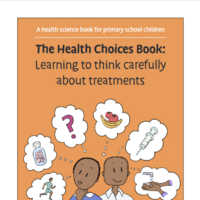Search
Books+
Searching 1,730 books
Search related to the career Pharmacologist
Career Opportunities for Pharmacologists:
1. Research and Development: Pharmacologists can work in research and development roles in pharmaceutical companies, academic institutions, or government agencies. They contribute to the discovery and development of new drugs, conducting experiments, analyzing data, and evaluating the effectiveness and safety of medications.
2. Clinical Pharmacology: Pharmacologists can work in clinical settings, collaborating with healthcare professionals to optimize drug therapy for patients. They may be involved in designing and conducting clinical trials, monitoring drug interactions and adverse effects, and providing recommendations for personalized treatment plans.
3. Regulatory Affairs: Pharmacologists can work in regulatory agencies or pharmaceutical companies to ensure compliance with drug regulations and safety standards. They review and evaluate drug applications, assess the risks and benefits of medications, and contribute to the development of drug policies and guidelines.
4. Pharmacovigilance: Pharmacologists can work in pharmacovigilance departments, monitoring and assessing the safety of drugs after they have been approved and marketed. They collect and analyze data on adverse drug reactions, identify potential risks, and contribute to the ongoing evaluation and surveillance of drug safety.
5. Academia and Teaching: Pharmacologists can pursue careers in academia, working as professors or researchers in universities or colleges. They teach pharmacology courses, mentor students, and conduct independent research to advance the field's knowledge.
6. Consultancy: Pharmacologists can work as consultants, providing expert advice and guidance to pharmaceutical companies, healthcare organizations, or regulatory agencies. They may offer expertise in drug development, clinical trial design, drug safety evaluation, or pharmacokinetics.
7. Pharmaceutical Sales and Marketing: Pharmacologists can work in sales and marketing roles for pharmaceutical companies. They utilize their scientific knowledge to promote and educate healthcare professionals about new drugs, their benefits, and appropriate usage.
8. Pharmacogenomics: Pharmacologists can specialize in pharmacogenomics, studying how an individual's genetic makeup influences their response to drugs. They may work in research, clinical settings, or industry to develop personalized medicine approaches based on genetic profiles.
9. Toxicology: Pharmacologists can specialize in toxicology, studying the adverse effects of drugs and chemicals on living organisms. They may work in research, regulatory agencies, or industry to assess the safety and potential risks associated with various substances.
10. Drug Information Specialist: Pharmacologists can work as drug information specialists, providing accurate and up-to-date information about medications to healthcare professionals, patients, and other stakeholders. They may work in hospitals, poison control centers, or pharmaceutical companies.
These career opportunities highlight the diverse roles pharmacologists can pursue in various sectors, contributing to drug discovery, development, safety, and optimization.
Source: Various AI tools
Searched in English.




















